Behavioral Science Insight Cards
Check out my free and ever-growing collection of printable behavioral science flashcards. You can use these in workshops, experience design sessions, or during brainstorming to shake loose ideas.
Click below to jump to a specific principle (A-Z):
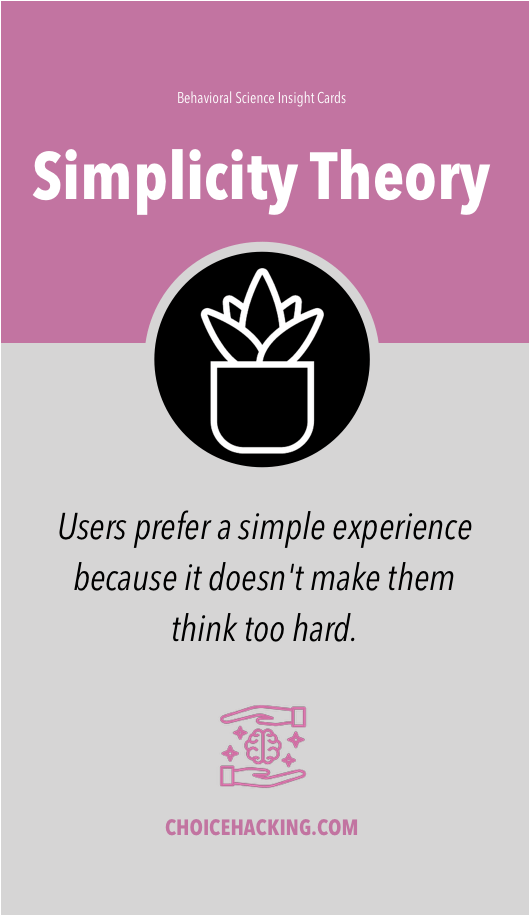
Simplicity Theory
Users prefer a simple experience because it doesn't make them think too hard.
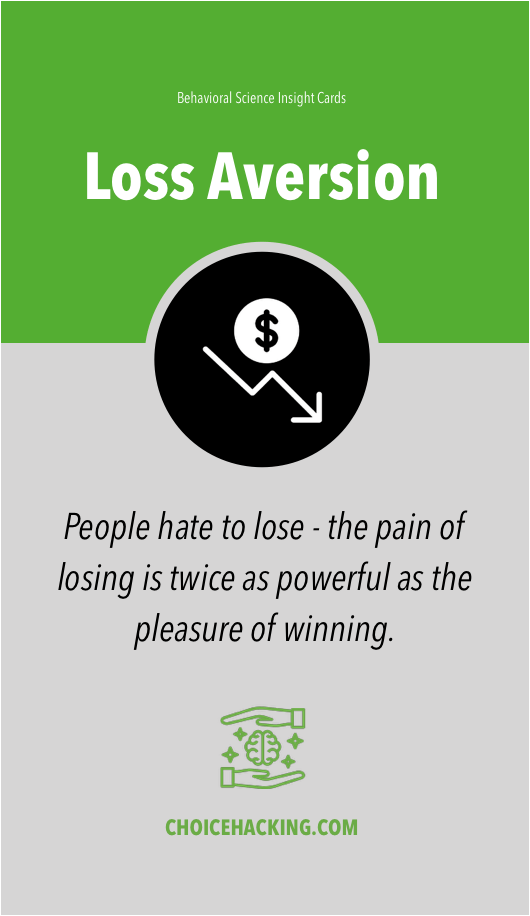
Loss Aversion
People hate to lose - the pain of losing is twice as powerful as the pleasure of winning.

Anchoring
The first piece of information a user sees will subconsciously affect the choices they make later.
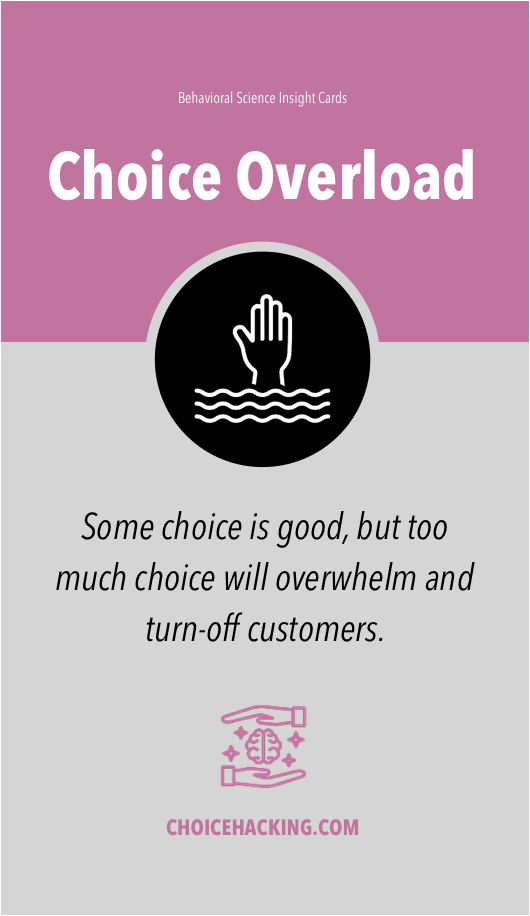
Choice Overload
Some choice is good, but too much choice will overwhelm and turn-off customers.
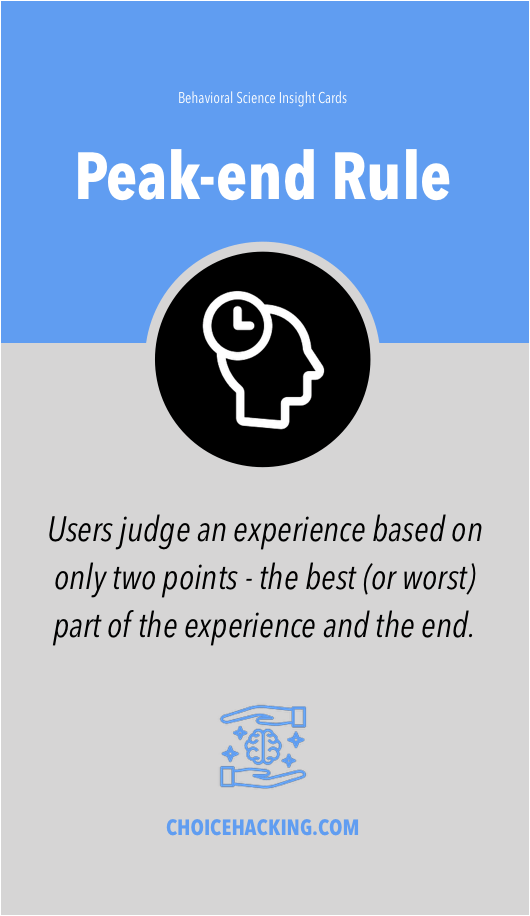
Peak-end Rule
Users judge an experience based on only two points - the best (or worst) part of the experience and the end.
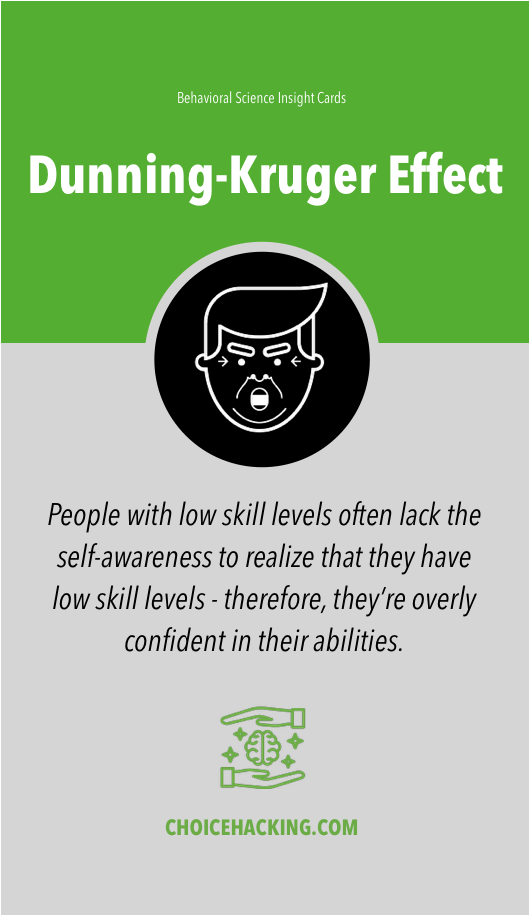
Dunning-Kruger Effect
People with low skill levels often lack the self-awareness to realize that they have low skill levels - therefore, they’re overly confident in their abilities.
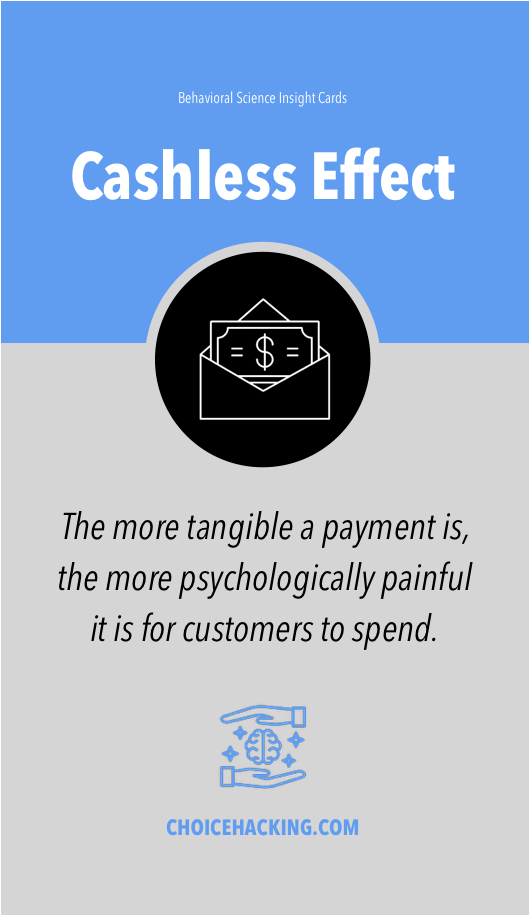
Cashless Effect
The more tangible a payment is, the more psychologically painful it is for customers to spend.
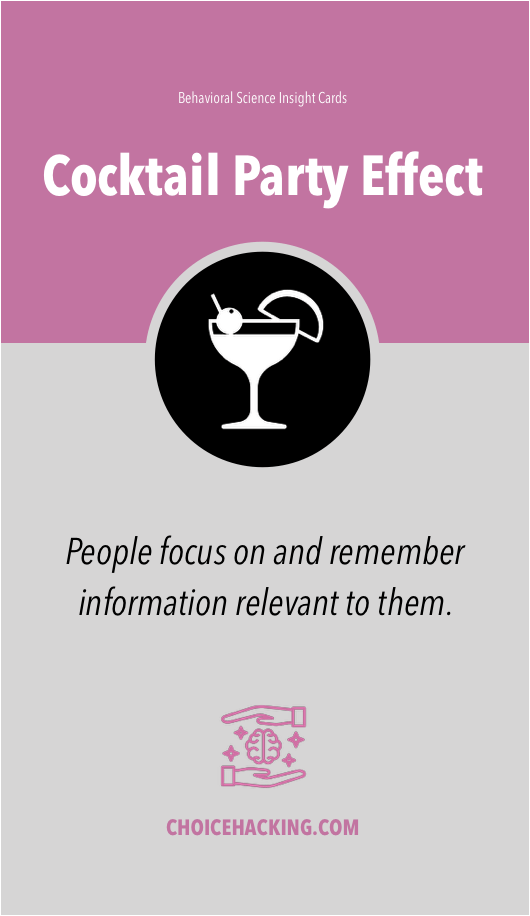
Cocktail Party Effect
People with low skill levels often lack the self-awareness to realize that they have low skill levels - therefore, they’re overly confident in their abilities.
